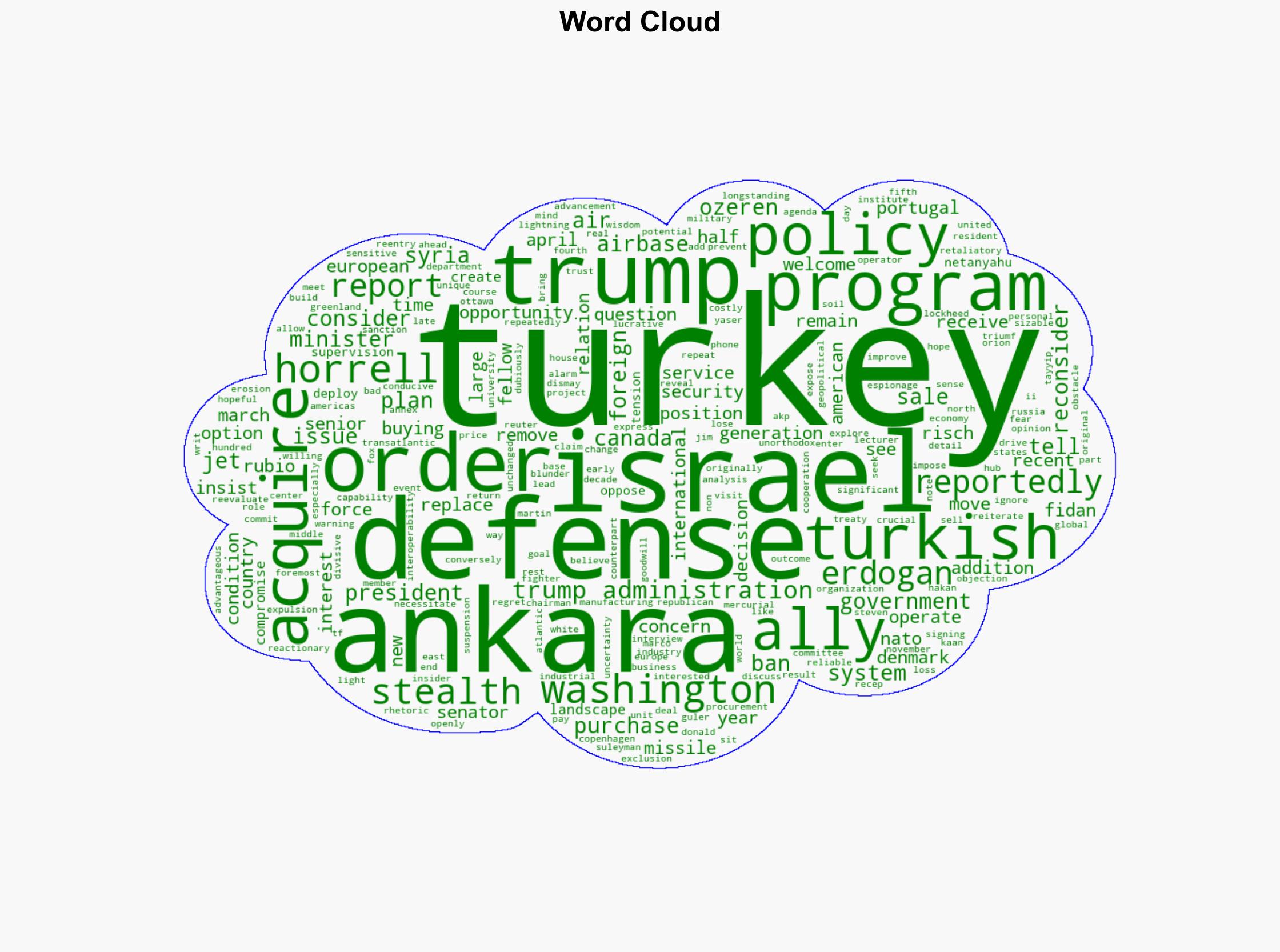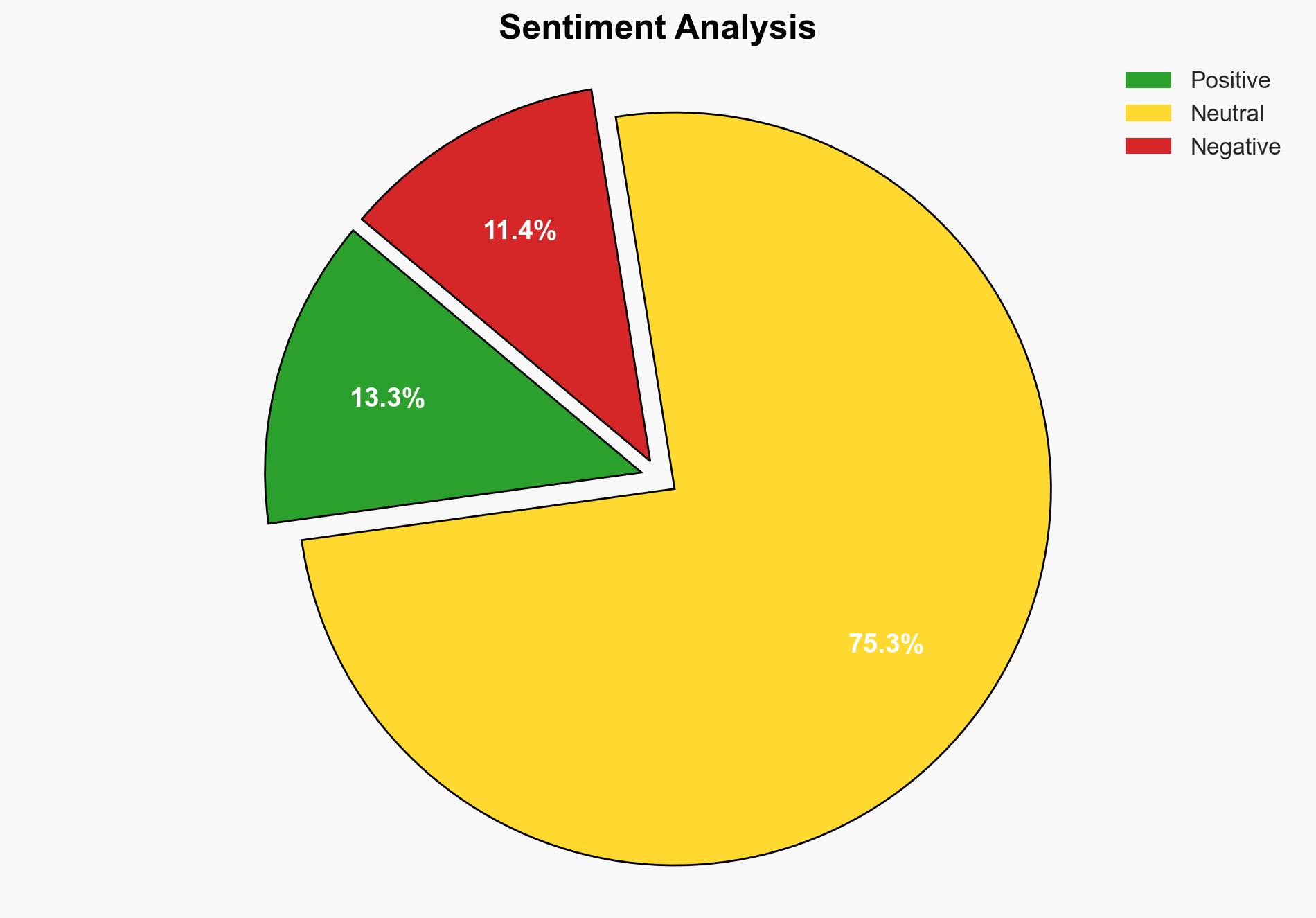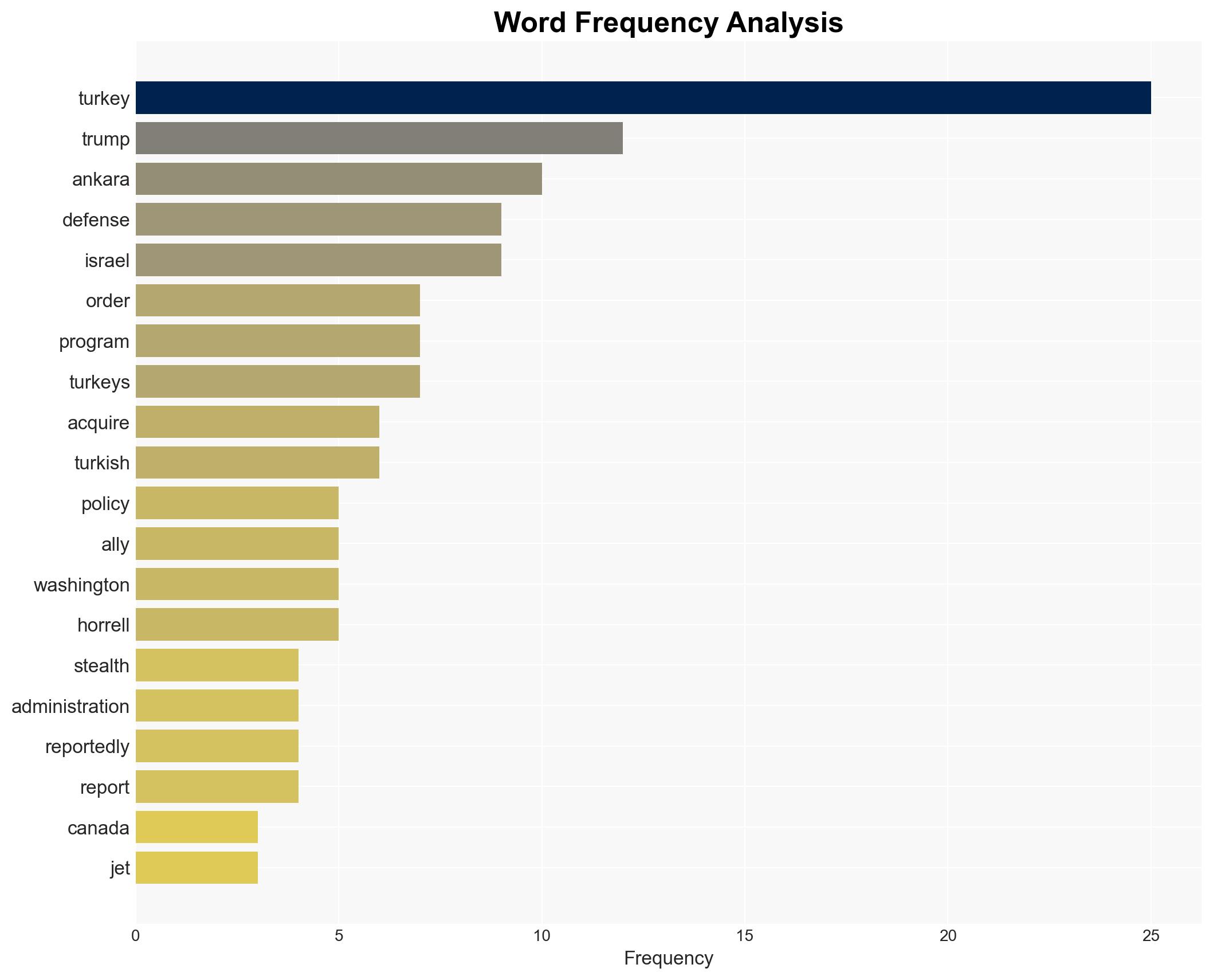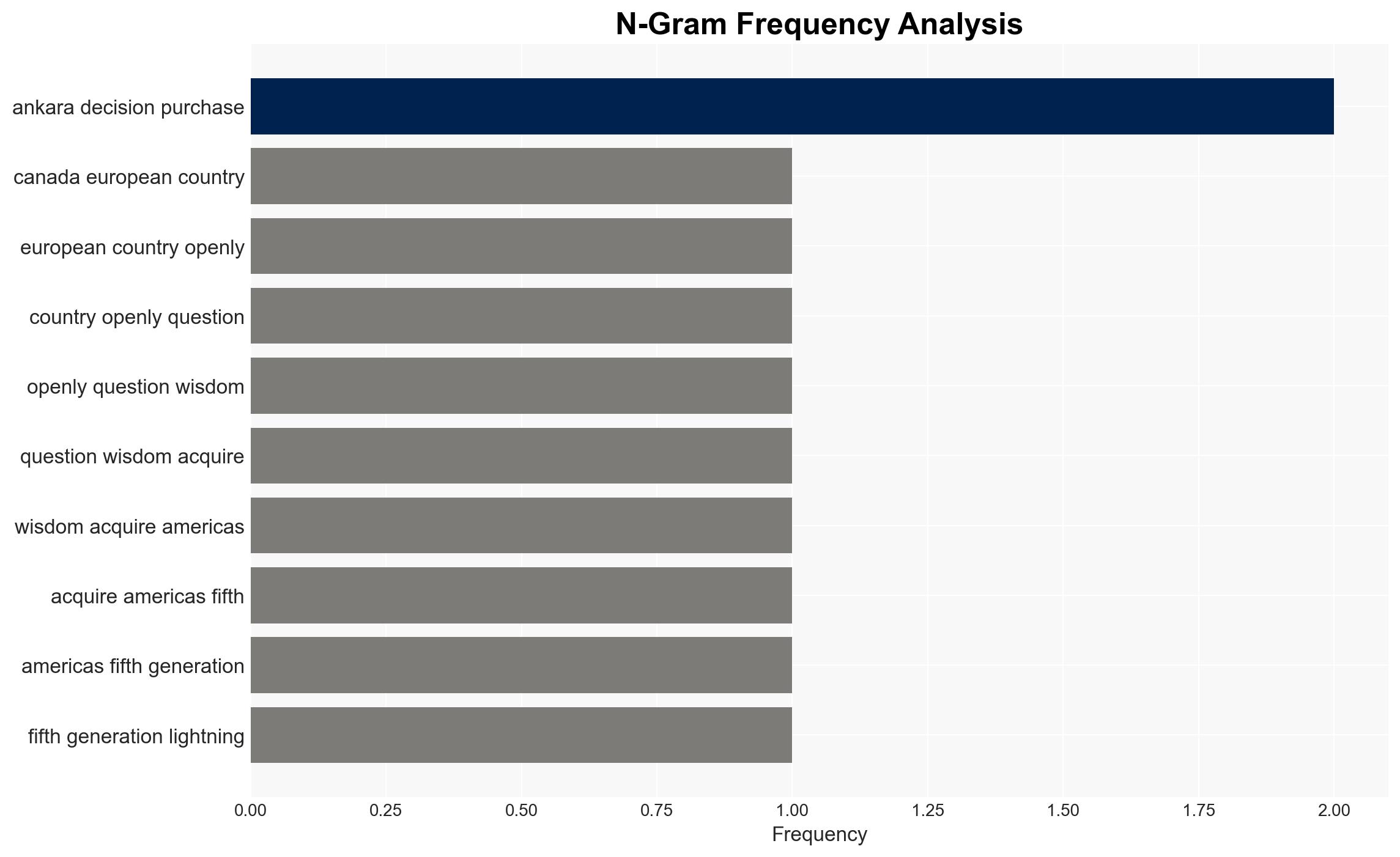As Trump Makes US Allies Reconsider F-35 Turkey Sees An Opportunity – Forbes
Published on: 2025-04-10
Intelligence Report: As Trump Makes US Allies Reconsider F-35 Turkey Sees An Opportunity – Forbes
1. BLUF (Bottom Line Up Front)
The Trump administration’s policies have led to a reevaluation of the F-35 Lightning II acquisition by several U.S. allies, including Canada, Denmark, and Portugal. While these countries reconsider their procurement strategies, Turkey sees a potential opportunity to re-enter the F-35 program despite previous bans due to its acquisition of the Russian S-400 system. The strategic landscape is marked by tensions between maintaining alliances and addressing security concerns related to sensitive military technologies.
2. Detailed Analysis
The following structured analytic techniques have been applied for this analysis:
General Analysis
Canada, Denmark, and Portugal are reassessing their F-35 orders due to concerns over the reliability of U.S. commitments under the Trump administration. Canada initially ordered 88 F-35s but is reconsidering the majority of this order. Denmark, having acquired half of its 27 F-35s, faces internal debates following Trump’s Greenland annexation comments. Portugal is exploring alternatives to replace its F-16 fleet. Conversely, Turkey, previously banned from the F-35 program, is hopeful for a change in U.S. policy, contingent upon the removal of the S-400 systems. The U.S. maintains that the presence of S-400s poses a security risk to the F-35’s stealth capabilities.
3. Implications and Strategic Risks
The reconsideration of F-35 acquisitions by key NATO allies could lead to a shift in defense procurement strategies, impacting U.S. defense industry interests and NATO’s collective defense posture. The potential reintegration of Turkey into the F-35 program, without resolving the S-400 issue, could compromise sensitive military technologies and strain U.S.-NATO relations. Additionally, the geopolitical dynamics surrounding U.S.-Turkey relations may influence regional stability in Europe and the Middle East.
4. Recommendations and Outlook
Recommendations:
- Engage in diplomatic discussions with Canada, Denmark, and Portugal to address their concerns and reinforce the reliability of U.S. defense commitments.
- Consider a phased approach to Turkey’s reentry into the F-35 program, contingent upon the removal of S-400 systems and assurance of compliance with NATO security standards.
- Enhance intelligence-sharing mechanisms among NATO allies to mitigate espionage risks associated with sensitive military technologies.
Outlook:
Best-case scenario: U.S. allies reaffirm their F-35 commitments, and Turkey complies with conditions for reentry, strengthening NATO’s defense capabilities.
Worst-case scenario: Continued uncertainty leads to reduced F-35 orders, weakening NATO’s air superiority and straining U.S. defense industry relations.
Most likely scenario: Incremental progress in resolving Turkey’s S-400 issue, with ongoing negotiations influencing allied procurement decisions.
5. Key Individuals and Entities
The report mentions significant individuals and organizations but does not provide any roles or affiliations. Key individuals include Donald Trump, Recep Tayyip Erdogan, Steven Horrell, and Jim Risch. The entities involved are Canada, Denmark, Portugal, Turkey, and the United States.





